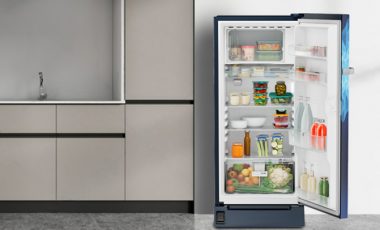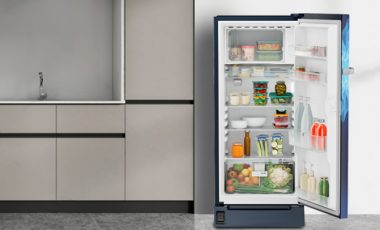As the temperature rises during the scorching summer months, our refrigerators become our best friends, keeping our food fresh and beverages chilled. However, with increased usage comes greater energy consumption, which not only impacts your utility bills but also contributes to environmental challenges. In collaboration with Liebherr, a pioneer in refrigeration technology, let’s explore some efficient ways to use your refrigerator during summer while minimizing energy consumption.
1. Optimal Temperature Settings:
Start by ensuring that your refrigerator and freezer are set to the optimal temperature. For the refrigerator, aim for a temperature between 37°F to 40°F (3°C to 4°C), and for the freezer, maintain a temperature around 0°F (-18°C). These settings keep your food safe while preventing your appliance from working harder than necessary.
2. Keep the Doors Closed:
During hot summer days, it’s tempting to frequently open the refrigerator door to grab a cold drink or a snack. However, every time you open the door, cold air escapes, and your refrigerator has to work harder to maintain the set temperature. Make a habit of opening the door only when necessary and closing it promptly to conserve energy.
3. Organize Your Refrigerator:
A well-organized refrigerator not only makes it easier to find items but also helps optimize cooling efficiency. Keep similar items together and avoid overcrowding shelves to allow for proper air circulation. Additionally, ensure that there’s space between items and the walls of the refrigerator to facilitate airflow.

4. Check Door Seals:
Faulty door seals can lead to significant energy loss as cold air escapes and warm air infiltrates your refrigerator. Periodically inspect the door seals for any signs of wear or damage, and replace them if necessary. A simple test to check the seal’s effectiveness is to close the door on a piece of paper; if you can easily pull the paper out, it’s time to replace the seal.
5. Clean the Coils:
The coils behind or beneath your refrigerator play a crucial role in dissipating heat. Over time, these coils can accumulate dust and debris, reducing their efficiency. Regularly clean the coils using a vacuum or a brush to ensure optimal airflow and energy efficiency.
6. Allow Hot Foods to Cool:
Before placing hot leftovers or freshly cooked dishes in the refrigerator, allow them to cool to room temperature. Putting hot items directly into the refrigerator forces it to work harder to cool down, increasing energy consumption.

7. Utilize Energy-Saving Features:
Many modern refrigerators come equipped with energy-saving features such as holiday mode, eco-mode, or high-efficiency compressors. Familiarize yourself with these features and utilize them to optimize energy usage based on your needs.
With a few simple adjustments and mindful practices, you can significantly reduce the energy consumption of your refrigerator during the summer months without compromising on food safety or convenience. By following these tips in collaboration with Liebherr, you not only save on your utility bills but also contribute to a more sustainable future. Let’s make cooling our food an energy-efficient and eco-friendly endeavour this summer and beyond.


